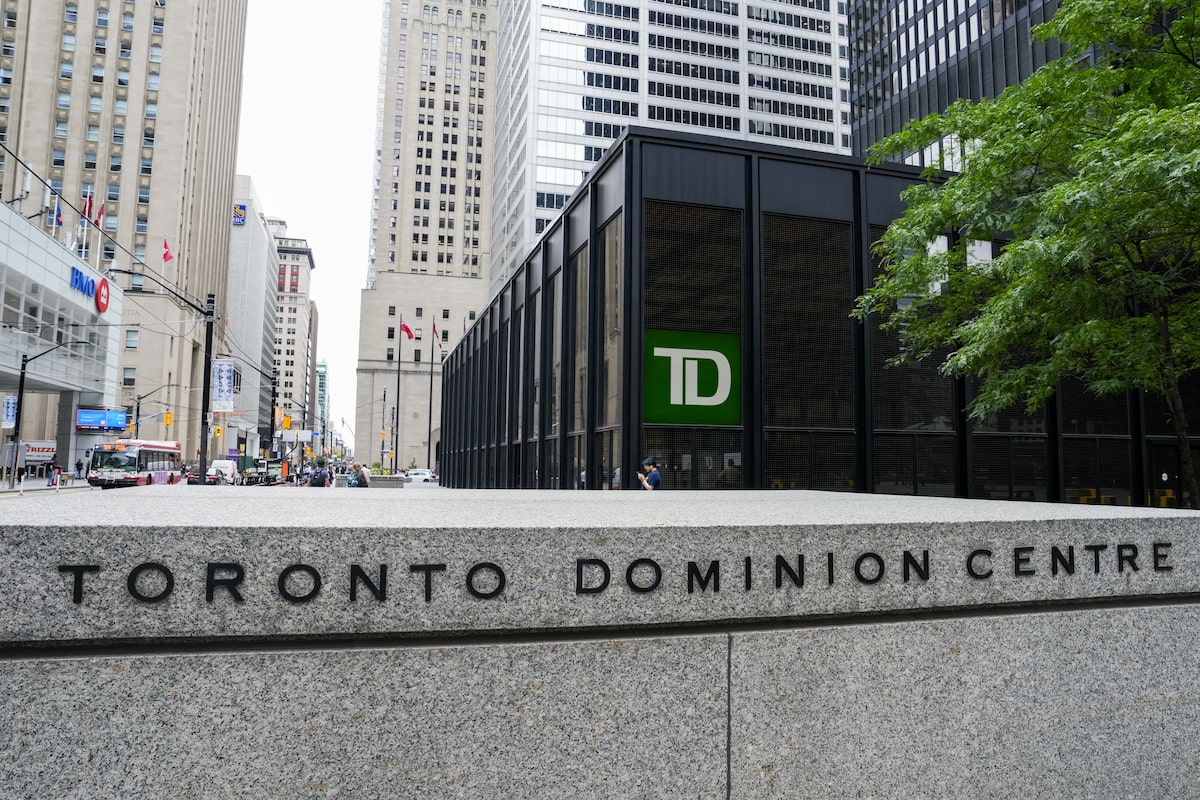


FinTRAC specified that TD Bank did not commit criminal offences for money laundering or terrorist activity financing.Andrew Lahodynskyj/The Canadian Press
Canada’s financial-crimes watchdog is imposing its largest-ever monetary penalty on Toronto-Dominion Bank – nearly $9.2-million – after a compliance examination found the lender had faulty anti-money-laundering controls.
The Financial Transactions and Reports Analysis Centre of Canada, or FinTRAC, announced the financial penalty on Thursday, stating it had completed a compliance examination of TD Bank in 2023.
The administrative monetary penalty, totaling more than $9.18-million, was imposed on April 9, 2024, for five violations of the Proceeds of Crime (Money Laundering) and Terrorist Financing Act and its associated regulations, FinTRAC said. TD has already paid the amount in full.
The Globe and Mail first reported in January, citing confidential sources, that TD was facing a significant penalty from FinTRAC as a result of various deficiencies detected as part of last year’s examination. (The Globe did not identify the sources because they were not authorized to speak to the media about regulatory issues.) At that time, TD had not yet exhausted its appeals process with the federal watchdog.
FinTRAC’s enforcement action adds to the regulatory scrutiny facing TD over its anti-money laundering practices. The Toronto-based lender announced earlier this week that it is setting aside US$450-million to cover penalties that it is facing as a result of a lengthy regulatory and law enforcement investigation in the United States.
“As part of their regular review of Canadian financial entities, FinTRAC identified five specific administrative findings that require our attention. Improvements have been made and more are under way,” TD spokeswoman Lisa Hodgins wrote in an e-mailed statement.
Those five administrative violations included the bank’s failure to submit suspicious transaction reports where there were “reasonable grounds to suspect that transactions were related to a money laundering or terrorist activity financing offence,” FinTRAC said.
TD was also cited for its failure to “assess and document money laundering/terrorist activity financing risks” and its failure to take prescribed special measures for high risk.
The last two violations outlined by FinTRAC included a failure by the bank to conduct ongoing monitoring of business relationships and a lack of record keeping when it did conduct that ongoing surveillance.
FinTRAC also specified that TD did not commit criminal offences for money laundering or terrorist activity financing.
“Canada’s Anti-Money Laundering and Anti-Terrorist Financing Regime is in place to protect the safety of Canadians and the security of Canada’s economy,” stated Sarah Paquet, Director and Chief Executive Officer of FinTRAC.
“FinTRAC will continue to work with businesses to help them understand and comply with their obligations under the Act. We will also be firm in ensuring that businesses continue to do their part and we will take appropriate actions when they are needed.”
FinTRAC is putting pressure on major banks and other businesses to bolster their anti-money-laundering procedures.
FinTRAC levied fines on Royal Bank of Canada and Canadian Imperial Bank of Commerce in December, with assessments of other banks still to come.
More to come.